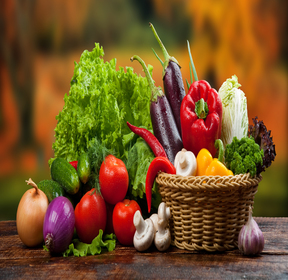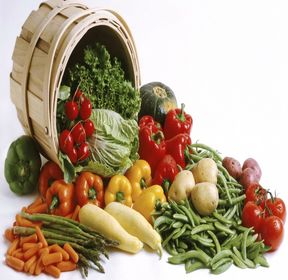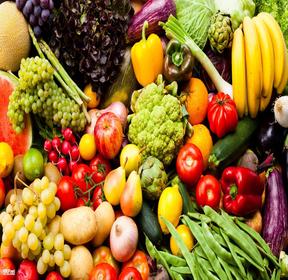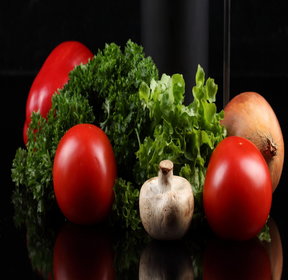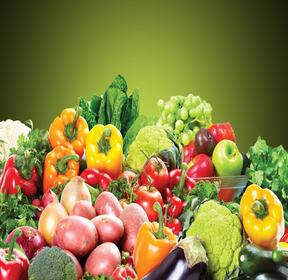Keynote Forum
Prakash-Kondekar
Visiting Faculty, Mumbai University IndiaTitle: Food Safety
Abstract:
Food Science deals with production, processing, distribution, preparation, evaluation and utilization of food. Food chemists work with plants that have been harvested and animals that have been slaughtered for food. They are concerned with how these food products are processed, prepared and distributed. Nothing is more important to humans than having nutritious food to eat, while agriculture and food science is multidisciplinary by its nature. Goal of food chemistry is to produce sufficient nutritious food and feed to support the population in a sustainable way with also being responsible to our environment and ecosystem. In 1960, micoproteins were made by one company from jackfruits. It has costed 90% less CO2. Then there will be aquaponics which needs less land and produced from fish wastes. All these are gimmicks of food chemistry. In near future the nutrition will play a vital role in the health of people for which new foods due to food chemistry will be very important.
Biography:
Prakash Kondekar has completed MD (Homoeo) in 1964, BSc (Hons) LLB Doctor of Naturopathy, 1992, Ayurved Ratna FRSH (London) Bowtech (UK). He has been Hon Director-Indian Institute of Naturopathy since 1996. He has published 30 papers-in-medical journals. Visiting Faculty, Mumbai University. Since 2011, invited by AICR Washington DC 2003. INDIA-VIETNAM INVESTMENT ENGAGEMENT Ho-Chi- Minh City-2013, GFSI Barcelona, Spain. St Cloud University Minneapolis-Food Microbiology, 2013, Vienna Energy Forum 2015, Indian- Embassy-ROME 2016. Invited by National University of Natural Medicines-Portland, Bastyr University-Kenmore, AM Commerce, and North Texas, University, 2018. Purdue University in 2019. Conducted 450 Health Management Programmes India and 20+ in UK, USA, Germany, Mauritius, Vietnam, UAE, Austria, Abu Dhabi, Spain, Singapore.
Speakers
Title: Food Toxicology and Microbial aspects of food
Title: Biotechnological Applications in Food Technology
Sruthi Josyula
Institute of Chemical Technology, IOC IndiaTitle: Importance of Food Safety during this Pandemic
Abstract:
Food safety is a major concern specially during this pandemic keeping in mind the consumer health and safety. Food safety always has been one of the very important preliminary steps during the complete food supply chain. Food safety helps eliminates in eliminating contaminations such as physical, chemical, biological, etc. Providing the consumers with safe and hygienic food products. Also, The Food Safety & Standards Act, 2006 defines Food Safety as an "assurance that food is acceptable for human consumption according to its intended use." We shall also study about the necessary improvements required to maintain food safety throughout the food supply chain, also knowing about the different certifications for food safety. The importance to protect the workforce in the food industries and the necessary steps to be followed specially during this covid pandemic. Also, external vulnerabilities for the operation need to be considered when reviewing the necessary measures to avoid/minimize the spread of COVID-19. For instance, disruptions in food production, the food supply chain, trade that relates to control of COVID-19 by other parties and impact on a business workforce or external inspections. Such conditions may include economical pressures on workers and their families, housing and transport conditions, literacy, etc. that make it difficult for workers to follow the strict COVID-19 mitigation measures of for instance abstaining from work, physical distancing, personal hygiene. While food safety measures and occupational safety measures target different aspects of consumer safety and worker/public health, the two together are complementary and, with a properly upgraded system, responsible food businesses will be able to significantly contribute to the protection of the health of their employees and consumers, as well as to their responsibility to help control the spread of COVID-19 in society
Biography:
Sruthi Josyula is a Food Technology Student from Hyderabad, Telangana, India
Zakiya A Bagwan
Institute of Chemical Technology IndiaTitle: High pressure processing on food
Abstract:
Agriculture plays a vital role in the American food industry. According to statistics, 16 percent of the food production comes from plants and employ the bulk of workers. But the sector is running low on productivity and fewer profit margins. That is why we need Artificial Intelligence in food processing units. The production unit is sinking because smaller companies cannot predict the choice of the customers or cannot comply with the food regulations. In such a case, Artificial Intelligence is our only hope. It is an advanced mechanism which can do a lot of work. Large companies are employing AI technology to increase their efficiency and profits. Companies like Coca-Cola and Kellogg’s are using the technical mechanism and their applications to promote rare fusions. We will discuss some of the applications of Artificial Intelligence in food processing which will make it better.
Biography:
Zakiya A Bagwan is a Student at MOKASHI COLLEGE OF FOOD TECHNOLOGY, KARAD Satara, Maharashtra, India.
Hency Rose
Banaras Hindu University IndiaTitle: COMPARATIVE STUDY ON COW MILK AND PLANT BASED MILK ALTERNATIVES
Abstract:
Plant-based or non-dairy milk replacements are a rapidly expanding niche in the functional foods, especially in beverage development worldwide. Cow milk allergy, lactose intolerance, calorie concerns, the prevalence of hypercholesterolemia, and a growing desire for vegan diets have all prompted consumers to look for cow milk alternatives. Phenolic compounds, unsaturated fatty acids, antioxidant activity, and bioactive chemicals such as phytosterols and isoflavones make plant-based milk substitutes an excellent choice. Vegetable extracts are watersoluble extracts from legumes, oilseeds, cereals, or pseudo cereals that resemble bovine milk in appearance and are used as direct replacements for cow's milk due to chemical similarities. They can also be employed in some animal milk-based products. But according to many scientific evidences and publications, natural milk has more beneficial nutrients and bioactive components than artificially manufactured plant-derived milks. The biochemical and nutritional benefits and capacities of genuine dairy milk cannot be replaced by man-made plant-based beverage items. Natural milk, unlike plant-based substitute milks, has a variety of bioactive and anti-appealing peptides that can help you lose weight. Low-fat, cultured, and lactase-treated milk and dairy products, when combined with other diverse nutritionally balanced meals, have been found to be a healthier dietary option than plant-based milk/foods on their own. In all respects, this presentation demonstrates the scope and limitations of plant-based milk in comparison to cow milk.
Biography:
Hency rose is a Aspiring Dairy Technologist and Reviewer at Kerala, India
Senthil-Kumar
College of Applied Sciences - Sur (Ministry of Higher Education - Sultanate of Oman) OmanTitle: Food Toxicology and Microbial aspects of food
Abstract:
Aquaculture is a worldwide activity and considered as a major economic and food production sector as it is an increasingly important source of protein available for human consumption. According to FAO, the supplies of fi sh, crustaceans, and molluscs from aquaculture increased from 3.9% of total production by weight in 1970 to 27.3% in 2000, and aquaculture is growing more rapidly than all other animal-food-producing sectors. Th e use of probiotics has gained signifi cance in aquaculture practices, particularly the disease outbreak. At present, the coastal aquaculture practices in Oman are centered on shrimps and eff orts are being made to diversity into fi nfi sh culture. In this context, the disease management is considered as of vital importance for the successful culture practices. Th e use of antibiotics in farming operations is not only costly but also considered as impractical. So, the probiotics has much role to play in disease management of fi nfi sh and shellfi sh aquaculture systems. In lieu of this increased attention has been turned to symbiotic marine microorganisms associated with seaweeds as a promising source for natural product isolation. Th is symbiotic marine microorganisms (endo & ectosymbiotic) were able to produce antibiotics against common fi sh pathogens, that can lead to isolate a novel secondary metabolites. Th e aim of this study was to identify symbiotic marine microorganisms which is associated in the seaweeds with antibacterial activity against common fi sh pathogens, in order to identify a possible alternative to the commonly used antibiotics in aquaculture.
Biography:
S. Senthil Kumar is presently working as associate Professor in College of Applied Sciences - Sur (Ministry of Higher Education - Sultanate of Oman) Sur, Oman. His background is Food safety management and marine biotechnology. He has been awarded Department of Biotechnology (DBT - India) postdoctoral fellowship at Centre for Cellular and Molecular Biology (CCMB, Hyderabad, India). In his 14 years of experience (research, teaching and industry) includes various programs, contributions and participation in different events for diverse fi elds of study. He taught more than 18 undergraduate and post graduate courses. He published more than 25 papers in national and international scientifi c journals and participated at more than 40 scientifi c conferences, workshops and meetings.
Dolly
Punjab Agriculture University IndiaTitle: HACCP Approach to food safety
Abstract:
The objective of present investigation was to assess the dimensional and functional characteristics of the eminent Indian cultivars (PR-114, PR-121, PR-122, PR-123, PR-124, PR-126 and PR-127). Dimensional (geometrical) properties such as length, width, thickness, equivalent diameter, surface area, aspect ratio, volume, bulk density, true density, porosity, thousand kernels weight, angle of repose and coefficient of friction were evaluated which play a critical role in designing an efficient framework for various post-harvest unit operations and storage structures. Cultivars like PR-121 and PR-126 manifested low bulk density due to the presence of long awns that in turn resulted in more space occupancy. A noteworthy variation was observed in the brown rice kernels that play a crucial role in governing the functional properties and estimating the energy prerequisites during polishing of these cultivars. Results indicated significant differences in the dimensional properties among various paddy and brown rice cultivars when compared with earlier reported results. Thousand kernel weight, width, arithmetic mean diameter and equivalent diameter showed significant positive correlations with sphericity, surface area, volume, true density and angle of repose; but negatively correlated with bulk density. A significant variation was testified in the functional characteristics such as rheological properties, water absorption capacity, swelling power, oil absorption capacity, emulsion and foaming capacity and emulsion and foaming stability of the brown rice flour obtained from these cultivars. These broadly diversified and anticipated dimensional and functional characteristics of the Indian cultivars not only establishing the foundation to preserve these races as well as encourage the farmers to cultivate these cherished rice cultivars.
Biography:
Dolly is currently pursuing PhD in Food Science and Technology as a Junior Research Fellow under University Grants Commission from Punjab Agriculture University, Ludhiana, Punjab. Her present research investigation is focused on assessing the potential of various rice cultivars in the formulation of instant indigenous food mix native to India.


